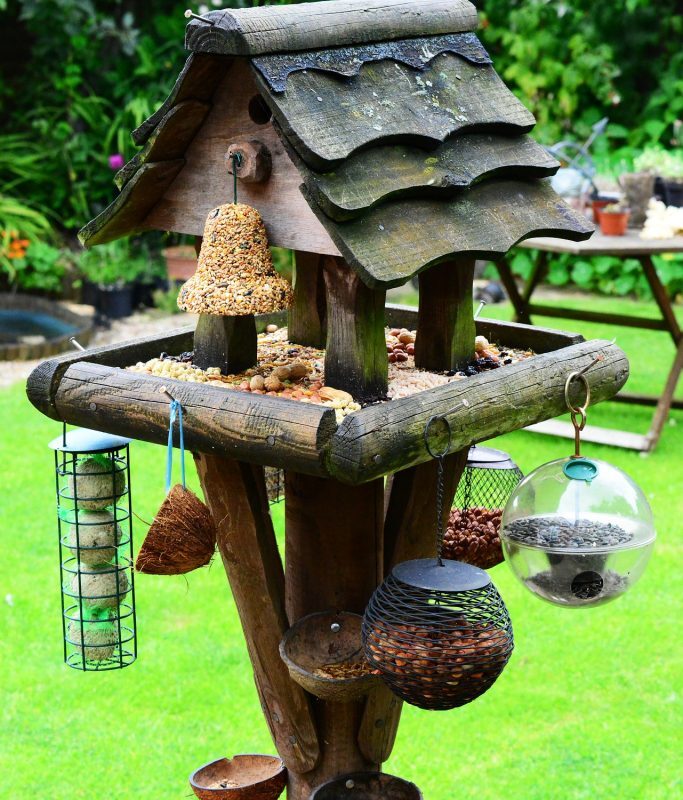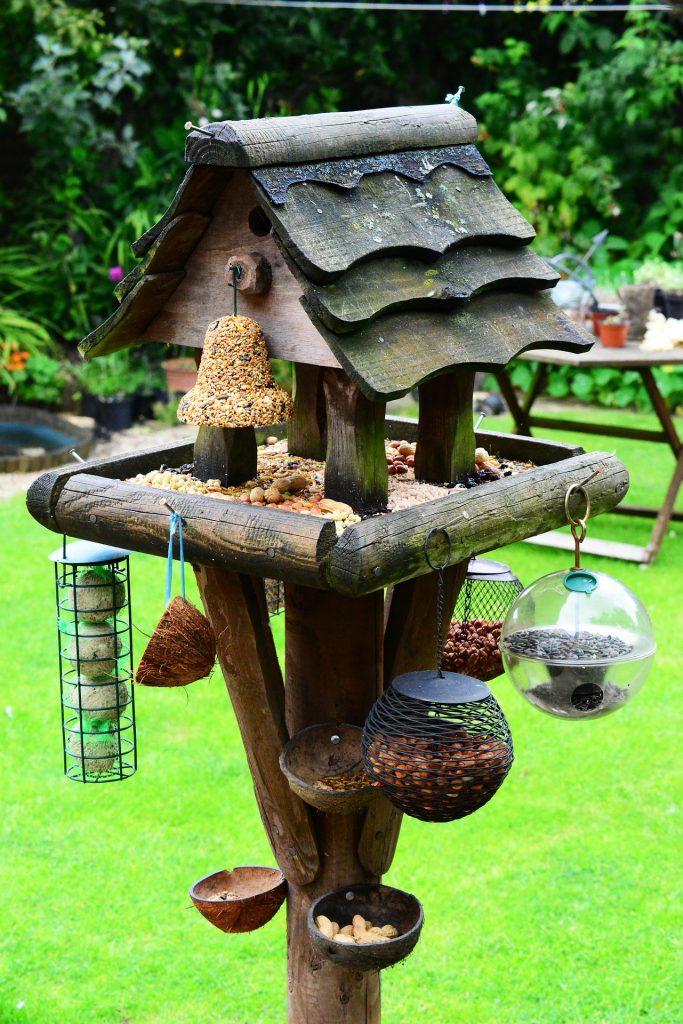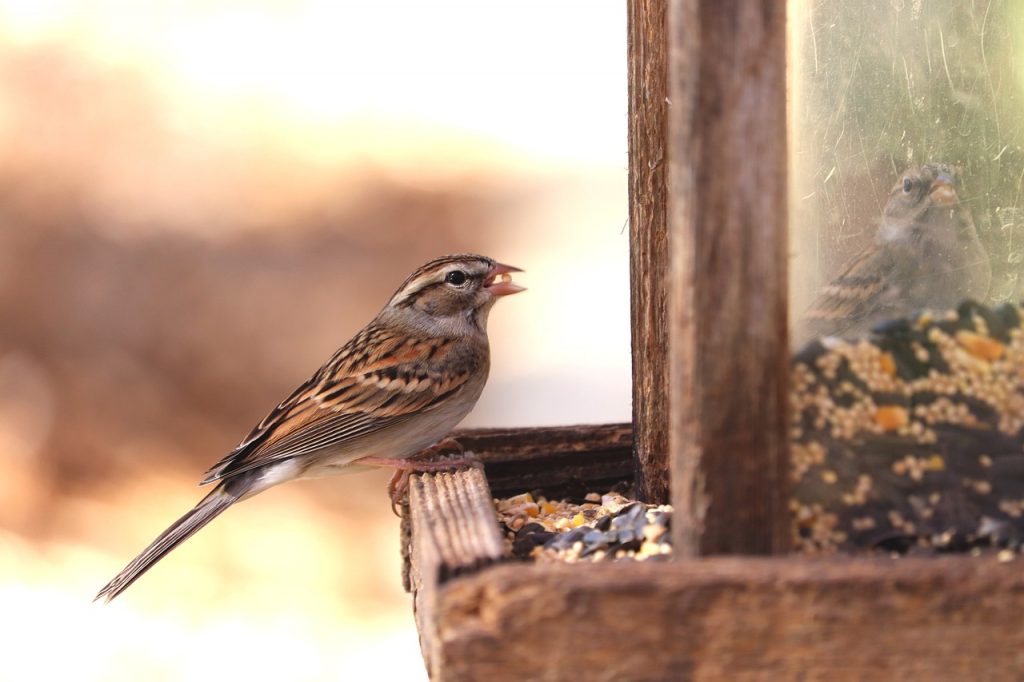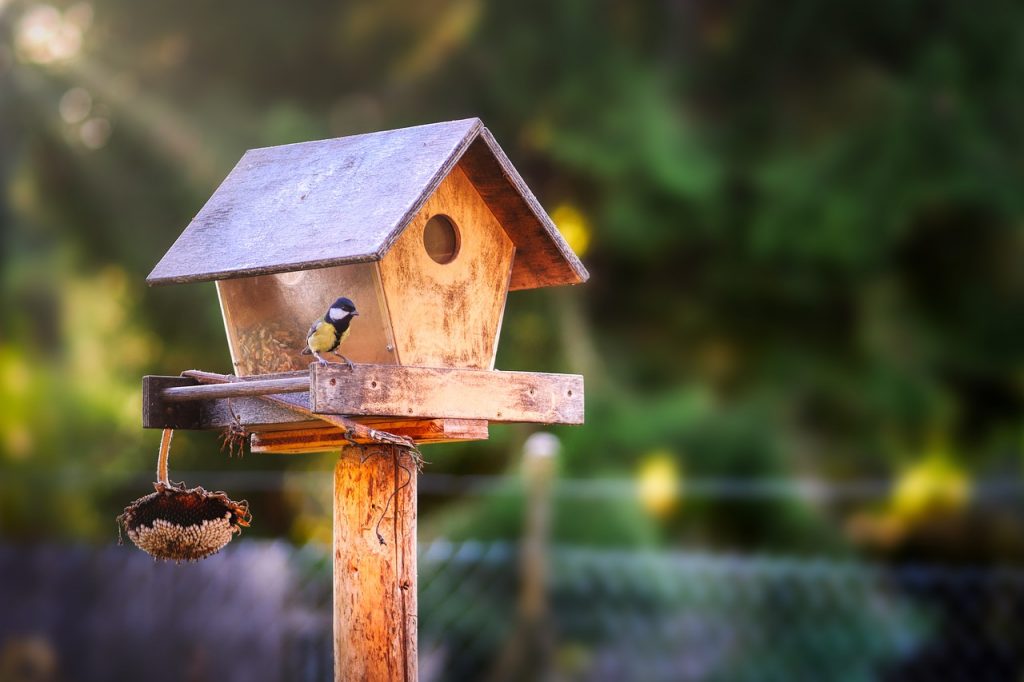Many of us now fill our bird feeders all year round, which according to the RSPB can help wild birds to cope with natural food shortages – for example if there’s a drought and their natural food supply is compromised. If you’d like to give the birds a boost when they really need it, though, spring, autumn and winter are the seasons to concentrate on. Spring is the nesting season and birds are looking for additional calories to support their young. Autumn is the season on migration, and birds need to stock up with extra energy before making the journey which in some cases can be thousands of miles long. Birds will also appreciate an additional layer of fat before going into the winter, so feeding them in the autumn as well as the winter can mean that they’re more likely to survive colder weather.
What to feed the birds
As we approach the winter, birds will appreciate a high fat diet. You can use commercially produced fat balls and fat bars – the former are best removed from their mesh nets which can damage feet. Decant them into a fat ball holder which will also keep them dry. You can also make your own high fat food, too. Collect kitchen scraps such as stale cake or biscuits, cooked rice, mashed potato, dried fruit, grated hard cheese or leftover dry oatmeal into a cup lined with clingfilm. Melt some suet or lard and pour it into the cup. Put it in the fridge to harden then turn the whole thing out onto the bird table and remove the clingfilm.
If you provide a wide variety of food, you’re more likely to see different species of birds. Commercial bird seed mixes can often contain cereals such as barley, which is too big for little song birds to eat. If you offer a mix of niger seed, mealworms and sunflower seeds as well as suet pellets and grains, you’ll have a lot of takers! Always provide a source of fresh water, especially if natural sources such as ponds may be dry or frozen.
What not to feed the birds
While birds are not generally fussy eaters, some kitchen waste will do them more harm than good. Chocolate is toxic, and anything too salty or sugary should be avoided. While bread won’t do them any harm, try to feed it only as part of a variety of other foodstuffs as it will fill birds up quickly and offers little nutritional value. Birds also can’t digest milk, so don’t offer that as a drink, although small quantities of cheese are fine.
How to feed the birds
If you can, try and put bird feed out at the same time each day so that they expect it. It won’t be long before they’re learnt your routine and came swooping in! Sweep up under bird feeders regularly as spilled seed may attract rodents.
Cross-contamination and the spread of disease is one of the biggest risk factors when you’re feeding lots of birds from the same feeder, so mitigate this as much as possible by washing feeders with mild detergent and warm water every so often. Position feeders high up and in a relatively open area so that birds can fly in easily.
If you have time, why not keep a log of the birds that visit your garden daily? Most visitors will be common birds but you might get the odd rarer visitor when word gets out!
All images (c) Pixabay










